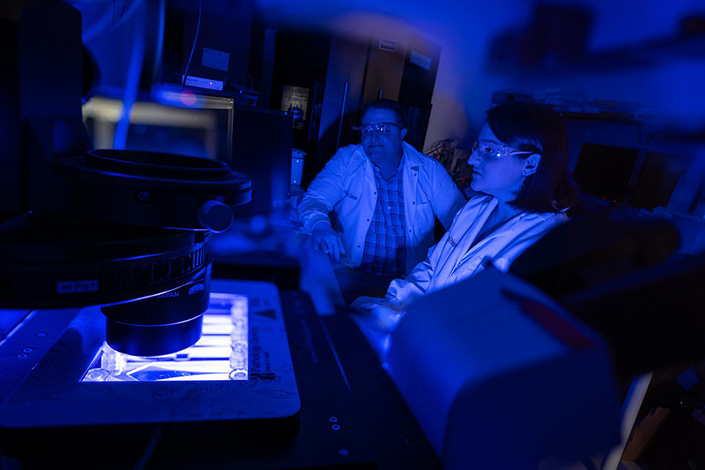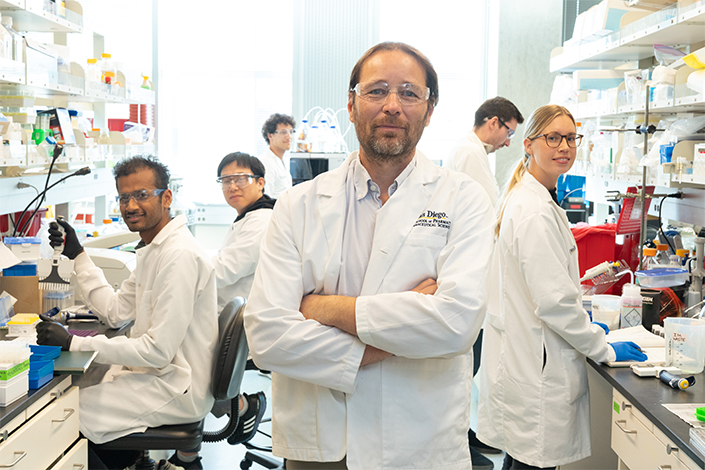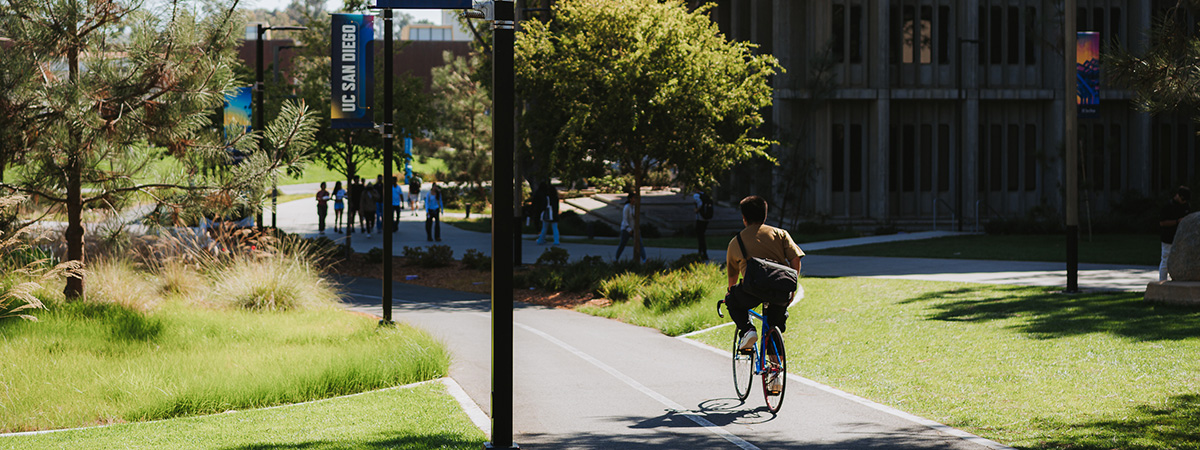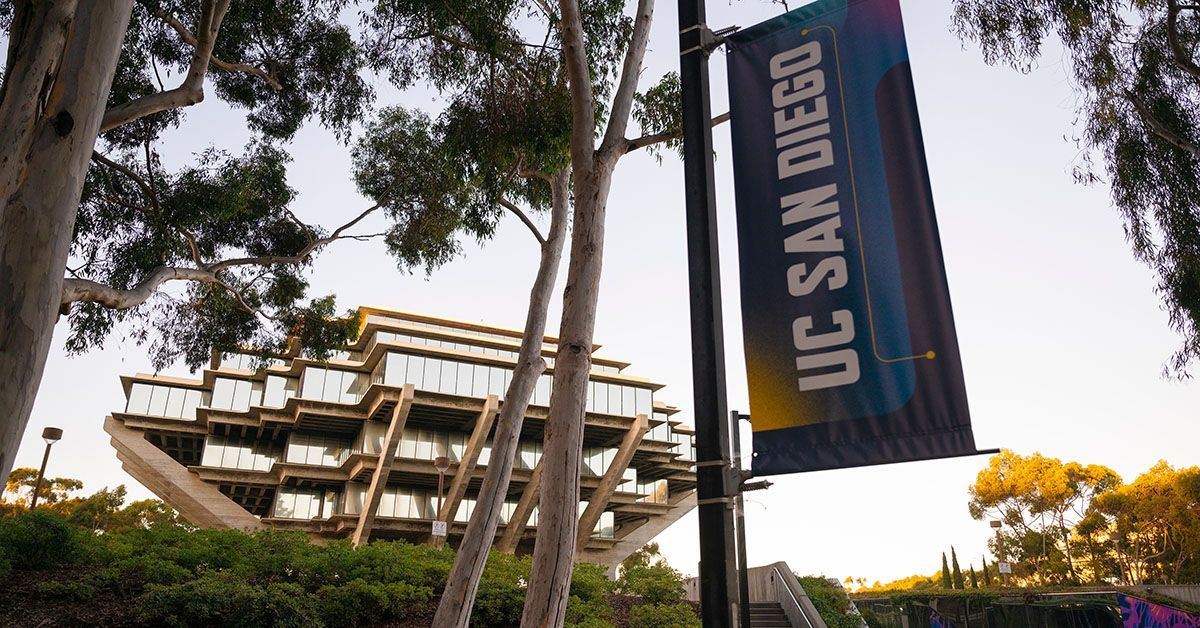UC San Diego Graduate Programs Recognized Among the Nation’s Best by U.S. News & World Report
Engineering rises to No. 10, School of Medicine earns Tier 1 status, and computer science and social sciences earn national recognition
Story by:
Published Date
Article Content
Graduate programs across the University of California San Diego continue to shine among the nation’s best in U.S. News & World Report’s 2025 Best Graduate Schools rankings. The Jacobs School of Engineering rose one spot to No. 10 in overall engineering while the School of Medicine maintained a stellar Tier 1 ranking in overall research.
U.S. News also recognized several other high-performing graduate programs at UC San Diego, including political science (8), economics (14) and psychology (14). The Jacobs School’s computer science program held steady at No. 13, with all four of its specialties ranked among the top 15 nationally—systems (10), programming language (11), artificial intelligence (11) and theory (14).
"We are proud to see the exceptional quality and diversity of UC San Diego's graduate programs recognized by U.S. News and World Report,” said Chancellor Pradeep K. Khosla. “These latest rankings reaffirm the critical role our graduate education plays in cultivating the next generation of leaders and innovators. Moreover, they recognize the outstanding expertise of our world-class faculty and scholars, who continue to drive innovations in technology, health care, social impact and beyond, ultimately shaping a brighter and healthier future for humanity."
Jacobs School of Engineering rises again
For the second consecutive year, the Jacobs School of Engineering rose one spot in the rankings, up from No. 11 in 2024 to No. 10 in 2025. Among public engineering schools, it jumped to No. 6 in the country and offers four top-15 graduate programs: biomedical engineering (8), computer engineering (12), computer science (13) and electrical engineering (14), according to the new rankings.
“Our hard work makes a difference,” said Albert P. Pisano, dean of the Jacobs School of Engineering and Special Adviser to the Chancellor. “We advance engineering and computer science research and education for the public good—and very often this work is in collaboration with teams from all across campus. Congratulations all!”
With graduate programs spanning six engineering and computer science departments, the Jacobs School’s transformative technical education and cutting-edge research drive innovation and impact. Each year, nearly 3,000 Jacobs School graduates enter the innovation workforce equipped to tackle the most pressing real-world challenges. In the past year, Jacobs School researchers developed a potential way to predict the spread of early-stage breast cancer by assessing how “sticky” tumor cells are; invented a novel circuit design to extend the flight time and life-saving applications of microdrones; and leveraged generative AI tools and physics-based data to better model Earth’s climate.
School of Medicine’s top-tier research

UC San Diego School of Medicine received a Tier 1 ranking for overall research—the highest-performing classification in the four-tier ranking system used by U.S. News to assess medical schools.
“Our Tier 1 ranking is a reflection of UC San Diego School of Medicine’s commitment to excellence in medical education, research and patient care,” said Barbara Jung, MD, associate vice chancellor and dean of the School of Medicine. “We have built a robust basic, translational and clinical research ecosystem with faculty, students and staff who are deeply passionate about advancing human health and well-being.”
Recently, School of Medicine researchers and their colleagues identified a key pathway leading to neurodegeneration in the early stages of amyotrophic lateral sclerosis (ALS), a devastating disease with an average two- to five-year survival rate among the approximately 5,000 patients diagnosed annually. The findings could lead to development of therapies to prevent or slow the progression of ALS. In another study, researchers used state-of-the-art recordings to observe how neurons synchronize across the human brain while reading, information that has potential to help treat neurological and psychiatric disorders and sheds light on the mystery between brain function and human experience. And in an example of the school’s impact extending beyond the laboratory and clinic, recent research demonstrated how sending microbes to space could improve astronaut health and the safety of people in other sterile environments here on Earth, such as hospitals and submarines.

School of Social Sciences impact shows in peer-assessment rankings
The UC San Diego School of Social Sciences received high marks for political science (8), economics (14) and psychology (14) in this year’s peer-assessment only rankings. The school also holds impressive standings for specialties last ranked in previous years, such as behavioral neuroscience (1), international politics (5) and econometrics (7).
Committed to research, teaching and service in the public interest, the School of Social Sciences educates citizens of the future and addresses issues of our times. For example, political science alumnus Mackenzie Lockart, PhD ’23, currently a postdoc at Yale, led research at the Yankelovich Center for Social Science Research that shows simple, proactive messaging from election officials can effectively reduce voter distrust. Political science alumna Rumman Chowdhury, PhD ’17, meanwhile, is leading in the technology arena, evaluating ethics in AI algorithms and how preexisting cultural and social biases influence the very basic data on which AI models are trained.
In economics, Assistant Professor Judson Boomhower helped reveal the striking variation in home insurance pricing based on wildfire risk. And Marc Muendler, chair of the Department of Economics and founding director of the Globalization and Prosperity Lab, is helping the public and policymakers assess the impact of tariffs and various other policy scenarios through the GPLab’s cBriefs.

More about the 2025 U.S. News rankings
U.S. News annually evaluates professional school programs in business, education, engineering, law, medicine and nursing, including specialties in each area. This year, the publication has also released peer-assessment rankings for graduate programs in public affairs, computer science, health, public health, library information studies, social sciences and humanities. However, U.S. News does not review every graduate program annually.
New since 2024, a tiered ranking system replaced the ordinal ranking system for medical schools used in previous years, with Tier 1 medical schools as the highest performing and Tier 4 as the lowest performing. Tiers were calculated based on data related to research activity, student selectivity and faculty resources.
The Best Graduate Schools rankings in computer science and social sciences are based on expert opinion about program quality. To read the complete U.S. News and World Report’s 2025 Best Graduate Schools list, visit the outlet’s website. For a complete listing of UC San Diego rankings and accolades, visit the Campus Profile.
Share This:
You May Also Like
Stay in the Know
Keep up with all the latest from UC San Diego. Subscribe to the newsletter today.




